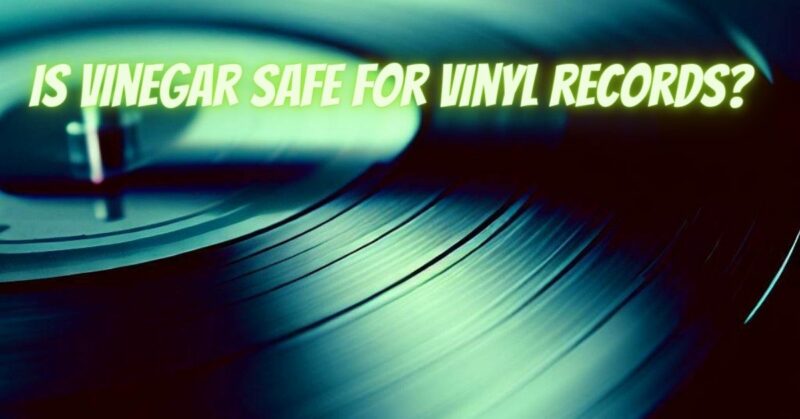Vinyl records are cherished by audiophiles and music enthusiasts for their warm analog sound and nostalgic charm. Proper care and maintenance are essential to ensure that vinyl records maintain their sound quality and longevity. One common question that arises among collectors and enthusiasts is whether vinegar is a safe and effective cleaning agent for vinyl records. In this article, we will explore the use of vinegar for cleaning vinyl records, its potential benefits, and the precautions to take when considering this method.
Understanding Vinyl Record Cleaning
Cleaning vinyl records is a critical aspect of record care. Over time, records can accumulate dust, dirt, and grime, which can affect sound quality and lead to pops and crackles during playback. Effective cleaning methods aim to remove these contaminants from the record’s surface without causing harm to the delicate grooves.
Is Vinegar Safe for Vinyl Records?
Vinegar is a versatile household product known for its cleaning properties. When diluted with water, it can be effective in removing various types of stains and deposits. However, it’s important to consider the following aspects before using vinegar on vinyl records:
Benefits of Using Vinegar:
- Gentle Cleaning: When used in a diluted form, vinegar is relatively gentle and unlikely to cause immediate damage to vinyl records.
- Stain Removal: Vinegar can be effective in removing certain types of stains, such as water spots or adhesive residue from stickers.
- Affordability: Vinegar is a cost-effective cleaning solution that is readily available in most households.
Drawbacks and Precautions:
- Dilution is Key: Vinegar should always be diluted with distilled water before use on vinyl records. A recommended dilution ratio is typically one part vinegar to ten parts water. Undiluted vinegar can be too acidic and potentially harm the vinyl and its grooves.
- Potential Residue: Vinegar can leave behind a residue if not rinsed and wiped away thoroughly. Residue can affect playback quality and attract dust and debris over time.
- Risk of Mold Growth: If records are not dried completely after cleaning with vinegar, residual moisture can create conditions conducive to mold growth.
- Stain Compatibility: Vinegar may not effectively remove all types of stains or contaminants found on vinyl records.
Safe Vinyl Record Cleaning with Vinegar:
If you decide to use vinegar for vinyl record cleaning, follow these steps to do so safely:
- Prepare the Dilution: Mix one part white vinegar with ten parts distilled water to create a diluted vinegar cleaning solution.
- Apply Sparingly: Moisten a clean, soft microfiber cloth or a record cleaning brush with the diluted vinegar solution. Avoid excessive moisture.
- Clean Gently: Using light pressure, gently wipe the record’s surface in a circular motion, moving from the center outward. Be careful not to touch the grooves with your fingers.
- Rinse and Dry: After cleaning, rinse the record with distilled water to remove any vinegar residue. Ensure that the record is completely dry before storing it.
- Inspect the Results: Examine the cleaned record under good lighting to ensure that the vinegar has effectively removed any stains or contaminants.
Alternative Cleaning Methods:
While vinegar can be a viable option for certain types of cleaning, there are specialized vinyl record cleaning solutions and cleaning machines designed specifically for the care of records. These alternatives are often preferred by collectors for their effectiveness and ease of use.
In conclusion, vinegar can be used as a cleaning agent for vinyl records, provided that it is diluted correctly and used with care. While it may help with some cleaning tasks, it may not be suitable for all types of stains or contaminants. Ultimately, the choice of cleaning method should be based on the specific needs of your vinyl records and your comfort level with the cleaning process. Proper care and maintenance will help ensure that your vinyl records continue to provide you with the best possible listening experience for years to come.


